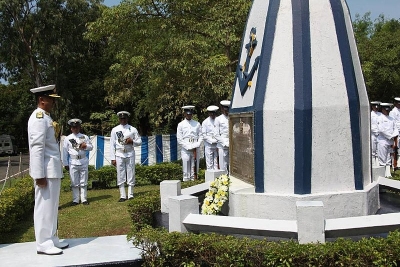America's hostile response to the Liberation of Goa
By IANS | Published: December 18, 2021 05:15 PM2021-12-18T17:15:43+5:302021-12-18T17:30:44+5:30
New Delhi, Dec 18 While opposing Portugal and US led motion on Goa in the UN Security Council, ...

America's hostile response to the Liberation of Goa
New Delhi, Dec 18 While opposing Portugal and US led motion on Goa in the UN Security Council, India's representative had said that the "elimination of the last vestiges of colonialism in India" was an "article of faith" for the Indian people, "Charter or no Charter, security Council or no security Council."
While paying tribute to the British and US efforts to persuade India to refrain from military action, Portugal dictator Antonio Salazar said that both Powers had "suffered a defeat at the gates of Goa."
While the US was staunchly opposed to the Liberation of Goa, the USSR resolutely backed India on the Goa issue. As per Keesing's Record of World Events, President Leonid Brezhnev, who was on a State visit to India at the time of the Goa crisis, said in Bombay on December 18 that the USSR had "complete sympathy for the Indian people's desire to liberate Goa, Daman, and Diu from Portuguese colonialism."
USSR leader Nikita Khrushchev sent a telegram to Jawaharlal Nehru saying that "the resolute actions of the Government of India to do away with outposts of colonialism in its territory were absolutely lawful and justified," and declaring that the Soviet people "unanimously approve of these actions". Similar expressions of unreserved support for India were made by governmental leaders in Poland, Czechoslovakia, Hungary, Rumania, Bulgaria, and Eastern Germany, as per Keesing's.
The then State Department spokesman Lincoln White said on December 18 that Dean Rusk had informed the Indian Ambassador in Washington, B.K. Nehru that the US "deeply regrets the use of force" by India in her dispute with Portugal. A strong criticism of the Indian action was made by Adlai Stevenson in the UN.
The Portuguese request for a security Council debate was approved by the Council by the bare minimum of seven votes after Dr Loutfi, as current president of the Council, had expressed his own country's reservations about the Portuguese charges; Zorin of the USSR opposed a debate on the ground that the matter was "exclusively within the domestic jurisdiction" of India and that Goa, Daman, and Diu could not be considered as "other than provisionally under the colonial control of Portugal."
As per Keesing's, on a vote, seven members supported Portugal's request for a debate
Disclaimer: This post has been auto-published from an agency feed without any modifications to the text and has not been reviewed by an editor
Open in app